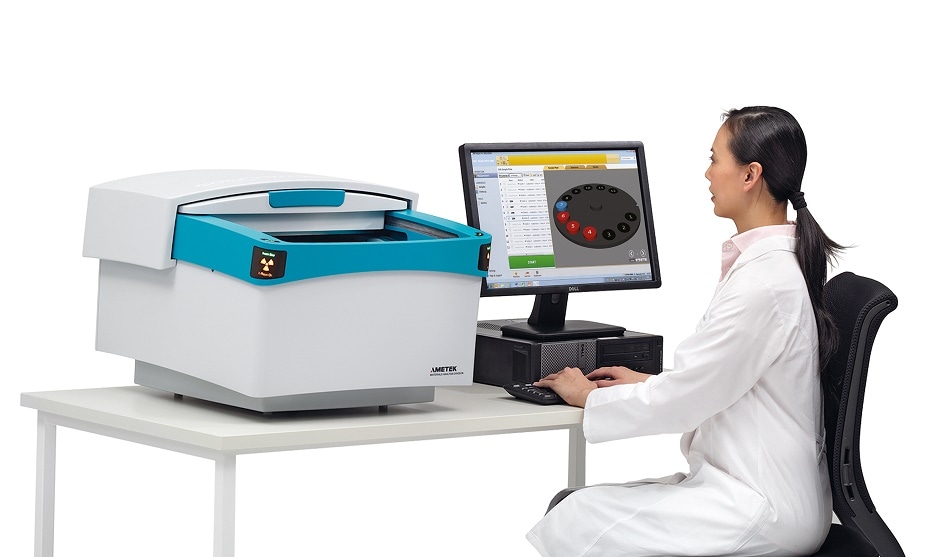 Spectro XEPOS
Spectro XEPOS
ASTM International has announced the publication of a revised version of ASTM D7751 – 16, “Standard Test Method for Determination of Additive Elements in Lubricating Oils by EDXRF Analysis.”
The method covers “the quantitative determination of additive elements in unused lubricating oils and additive packages,” and is now complete with a repeatability and reproducibility statement, notes Dirk Wissmann, Senior Product Manager XRF, SPECTRO Analytical Instruments GmbH.
SPECTRO XEPOS energy dispersive X-ray fluorescence (ED-XRF) spectrometers — which feature new developments in excitation and detection that deliver outstanding sensitivity and detection limits and yield remarkable gains in precision and accuracy — are compatible with ASTM D7751 – 16, Wissmann states.
A new brief, addressing the topic of the new method, discusses the XEPOS analyzer and five key applications for the elemental analysis of petrochemical products. Titled, "Analysis of Twenty-Four Elements in Petrochemical Products," the brief examines applications from the blending control of fresh lubricants and the control of additive packages to used oil analysis; sulfur in crude oil distillates and sulfur and other trace elements in crude oil and heavy fuel oil; and distillate burner fuels derived from waste mineral oils. The brief is available at http://xrf.spectro.com/spectro-xepos/application-briefs/analysis-of-elements-in-petrochemical-products.
Also available is the on-demand webinar, "Elemental Analysis of Liquid Petroleum Products with a Focus on ED-XRF.” The webinar presents an overview of the different elemental analysis techniques that can be used for petrochemical products. The webinar can be accessed at http://xrf.spectro.com/spectro-xepos/on-demand-webinars/elemental-analysis-of-liquid-petroleum-products/.
SPECTRO XEPOS spectrometers represent a dramatic advance in ED-XRF technology. They feature breakthrough advances in the multi-elemental analysis of major, minor, and trace element concentrations and are compatible with the new “ASTM D7751 – 16” standard test method — SPECTRO XEPOS spectrometers represent a dramatic advance in ED-XRF technology, comments Wissmann.
For more information about XEPOS analyzers, visit http://www.spectro.com/xepos or email [email protected]
ASTM standards and publications relating to ASTM D7751 – 16, “Standard Test Method for Determination of Additive Elements in Lubricating Oils by EDXRF Analysis,” are available at https://www.astm.org/Standards/D7751.htm.